BEIJING, April 17th (Reporter Ren Siyu) "3.1415926… …” "Louder!"
Have you ever had a nervous experience of reciting pi and performing talents at a family dinner?

Source: Video screenshot.
The recent hit Xiao Shede has made many people dream back to childhood. As the third part of the "Xiao Shede" series, Xiao Shede is aimed at the family life of Xiao Shengchu.
How about children’s grades, whether they should enroll in remedial classes, take several interest classes, be an improper class cadre, fail to win the Olympic Mathematics English Award, and whether they can choose a school to go to the gold medal junior high school … … Behind the seemingly happy life of primary school students is the secret struggle of parents.
"Xiaoshengchu", the battlefield for parents
The first family dinner of "Xiao Shede" made many viewers feel suffocated:
Nanli (Song Jia) and Tian Yulan (Rulu) attend a reunion banquet planned by their father Nan Jianlong (Zhang Guoli). When his father celebrates Nanli’s daughter’s joyful singing and won the first prize, Tian Yulan, who is not angry, begins to show off that his son Zi You won the first prize in the exam. Nan Li and her daughter happily played and sang, and Tian Yulan forced her son to recite more than 1000 pi in public.

Source: Video screenshot.
Tian Yulan and Nan Li, one is a strict "tiger mother" who believes in hard work and wins, and the other is a "Buddhist" parent who wants their children to grow up happily.
"Man struggles upwards and flows downwards. Don’t relax your child’s study. If you feel sorry for him now, it will hurt him in the future."
"No way, children have a high starting point, and there is nothing missing from childhood. Childhood is only once, and happiness is the most important."
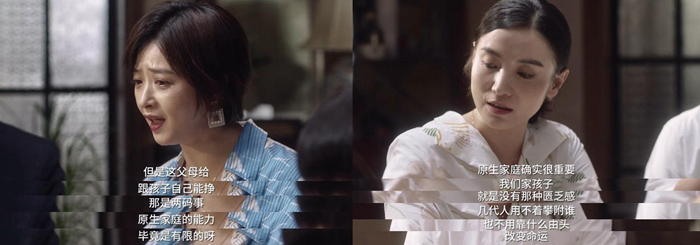
Source: Video screenshot.
The tit-for-tat between the two people, on the one hand, comes from the bitterness of special family relations. Father Nan Jianlong divorced once and then married Cai Juying, a care worker. Nan Jianlong’s daughter Nan Li and Cai Juying’s daughter Tian Yulan formed a "halfway sister".
As a child, Tian Yulan’s economic conditions were not good enough. She relied on Nan Jianlong’s support to go to college and get married, so she was looked down upon by her husband’s family. Although life is good now, she always feels inferior in her heart, so she spends all her energy on her children’s study.
Whenever she can’t stand her mother’s humility at a family dinner, she takes out her children to earn face. For her, children’s achievements are tools to add luster and stay young.

Source: Video screenshot.
When her son scored 86 points in the math test, Tian Yulan was on the verge of an enemy. She suspected that the teacher Zhong, who had published the paper, had privately run a cram school and was unfairly treated. Finally, she reported that the teacher had resigned. However, when she learned that Ms. Zhong was the teacher of the extra-curricular gold medal class, she begged and gave gifts in every way, even the whole family went into battle, as long as she entered the class.

Source: Video screenshot.
Tian Yulan’s "Chicken Baby" education is anxious and disturbing, but in such an atmosphere for a long time, Nanli, who has always advocated happy education, has also changed.
Nanli never gave her children high-pressure education, but Tian Yulan accidentally poked the fact that her daughter scored 45 points. After visiting many training courses, the couple decided to teach their children in person, and as a result, Huanhuan got the last place.
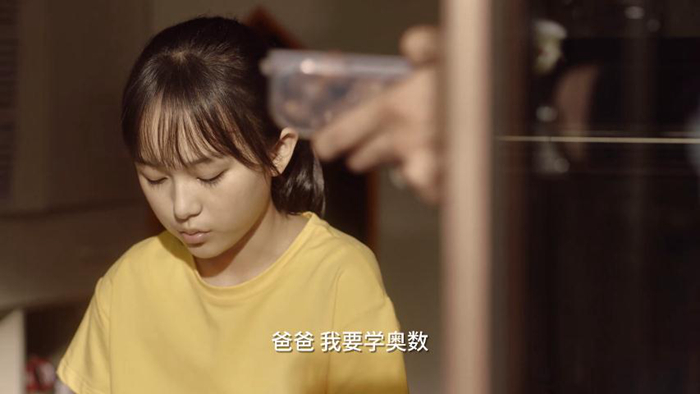
Source: Video screenshot.
They also made a whisper in their hearts: why didn’t the two parents who learned to bully cultivate a child with excellent grades?
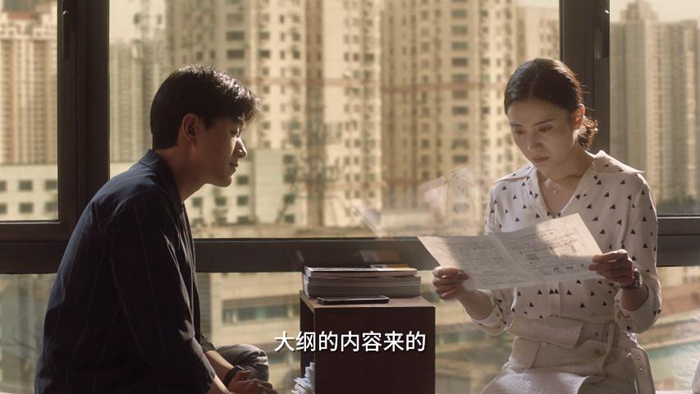
Source: Video screenshot.
As a result, when the sisters who were already competing met the critical period of "Xiaoshengchu", the conflict gradually came to the light from the dark. And their parenting anxiety has spread step by step to the grandparents and grandchildren.
In order to help his grandchildren win the gold medal training class, Nan Jianlong found his former subordinates to plead and apologize. In the end, he only got a quota. On the one hand, he was a daughter, and on the other hand, he was a mother and daughter who saved his life. He had to face the embarrassment of "a bowl of water is uneven".
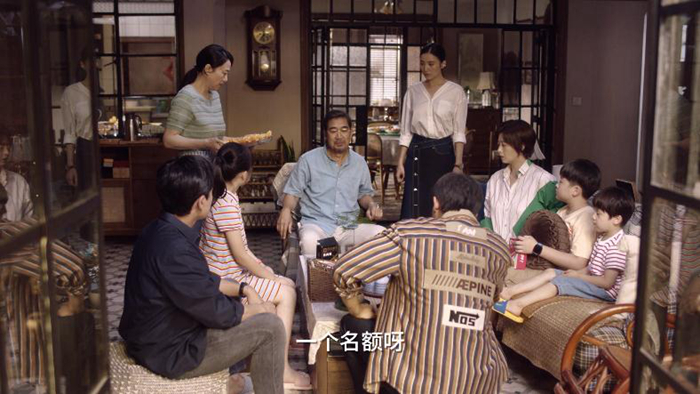
Source: Video screenshot.
Huanhuan, a talented student, failed in the class committee election and was ridiculed by her classmates. She cried and took the initiative to ask her parents to arrange a cram school, and the sooner the better … …

Source: Video screenshot.
raise childrenStory, why is the assembly popular?
Some people say that the story of Xiao Shede makes people’s blood pressure rise, but others say that if you look at life, such cases are everywhere.
"Resume of 5-year-old children" and "Haidian Mom" … … In recent years, the topic of "Chicken Baby" has been frequently searched.

Source: Video screenshot.
The so-called "chicken baby" is to educate children with chicken blood. The "Chicken Baby" life plan of parents in Haidian, Beijing, once circulated on the Internet: 1 year old, bilingual teaching in Chinese and English; At the age of 3, I can read English picture books by myself and recite 100 ancient poems. 5-year-old, studying Olympics and thinking training; At the age of 6, she went to the best primary school in the district, and Olympiad entered the innovative class … …
The advertisements of education and training institutions all amplify this emotion: "You haven’t started learning English at the age of two, and you are about to miss the sensitive period of your child." "If you don’t let your child learn programming, he will be abandoned by the times."

Source: Video screenshot.
But even if schools don’t play up the competitive atmosphere and training institutions don’t publicize it vigorously, parents’ inner anxiety is already overflowing:
The school does not provide students’ exam rankings, and there are small yellow notes on the statistical table, which makes it impossible for parents to ask each other about their children’s grades;
Some art training institutions even offer a "triple jump" service: they only practice the required tracks of the grading test every year, and take three or four years to win the tenth grade test. What they are aiming at is the utilitarian demand that parents are eager to achieve.
In order not to let their children lose at the starting line, parents try their best to arrange their study and life to the fullest, and the reasons sound reasonable:
"I believe that my children are gifted and not mediocre by nature, maybe ‘ Chicken ’ Can you become a phoenix in a moment? "
"Now the competition for resources is so fierce, if you fight once more, you can give your children one more choice";
"I have a good life now through hard work. If my childhood is too happy, the future will not be easy";
"I am paying for it now, so that my children will not regret blaming me in the future."

Source: Video screenshot.
In Xiao Shede, Mi Tao, a primary school student from other places, always comes first in the exam. Her mother does housework and her father sells fruit. Without her parents’ crazy urging and cram school, she just can become a schoolmaster.
Seeing such a talented child, how can other parents not worry?
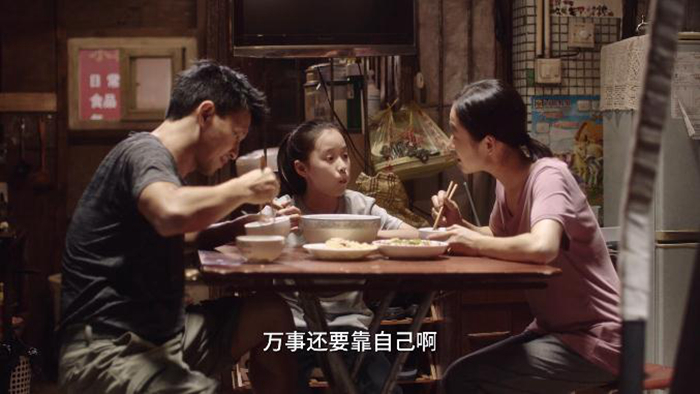
Source: Video screenshot.
Unwilling to lag behind and afraid to lag behind, parents have gradually embarked on the road of "chicken baby".
Their high standards and high expectations have spawned various educational methods and "slang". Ordinary children are "frogs", children with outstanding abilities are "bullfrogs", those who are "chickens" at home are called "domestic chickens", those who report to after-school classes are called "class chickens", and even parents have formed "corns" groups: in order to protect children’s eyesight, they take their children to do eye exercises and climb trees to see green leaves every day.
Happy growth, or chicken blood growth?
Under the concept of "each generation is stronger than the next", all parents want their children to live a happier life.
When the audience is often angry about Tian Yulan’s "Chicken Baby", they can understand her difficulties when they see her worrying about her children and wiping her tears.
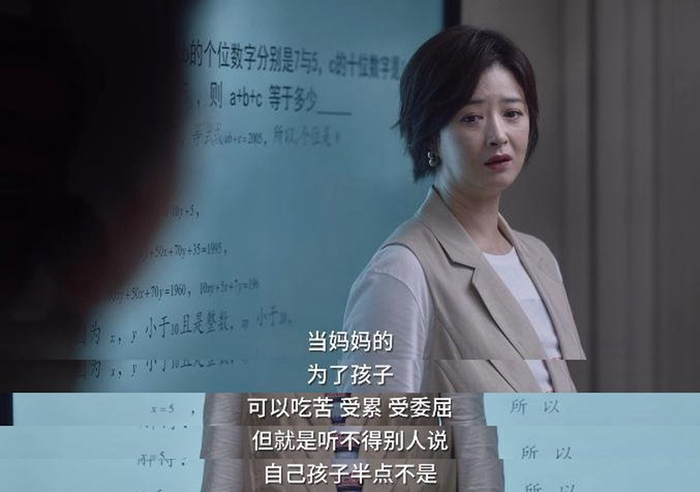
Source: Video screenshot.
However, behind such parenting, do parents really care about their children’s ideas?
Zi You, who is clever and sensible and regarded as proud by Tian Yulan, has a small hobby: insects.
He told Huanhuan that his biggest dream is to be a biologist, but this hobby can only get a "disgusting" response from his mother.
There is a scene in the play in which Tian Yulan comes home to see Zi You playing with insects, and he is mad at hearing that he forgot to bring his exercise book, and he takes all his anger out on his son.

Source: Video screenshot.
When she learned that her son had got good grades in the exam, she immediately became all smiles again.

Source: Video screenshot.
Be asked to be the first in the exam and be asked to run for class cadre … … What the audience can see is that the psychological pressure and fatigue of children are getting bigger and bigger every day.
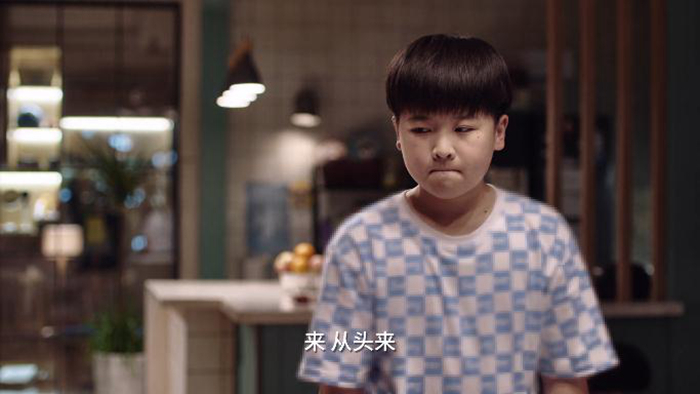
Source: Video screenshot.
On the other hand, Huanhuan, who is good at literature and art and has a cheerful personality, is gradually out of balance under the comparison of parents and classmates, and will cry at every turn.
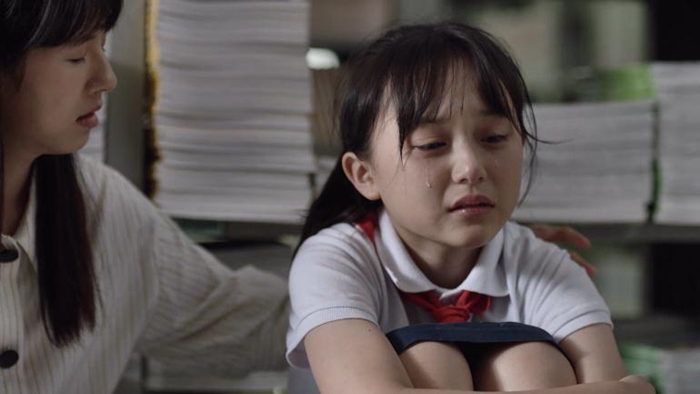
Source: Video screenshot.
Are they really happy in the long run?
The TV series asked the parents a question through the children’s mouth: Do you love me or me who got full marks?
Parenting anxiety is a difficult problem to solve. Every parent wants to help their children earn tickets for the upward channel, but growth is never a one-way street.
Parents can have expectations for their children, but they can’t be capped just because they shout the slogan "It’s all for your own good".
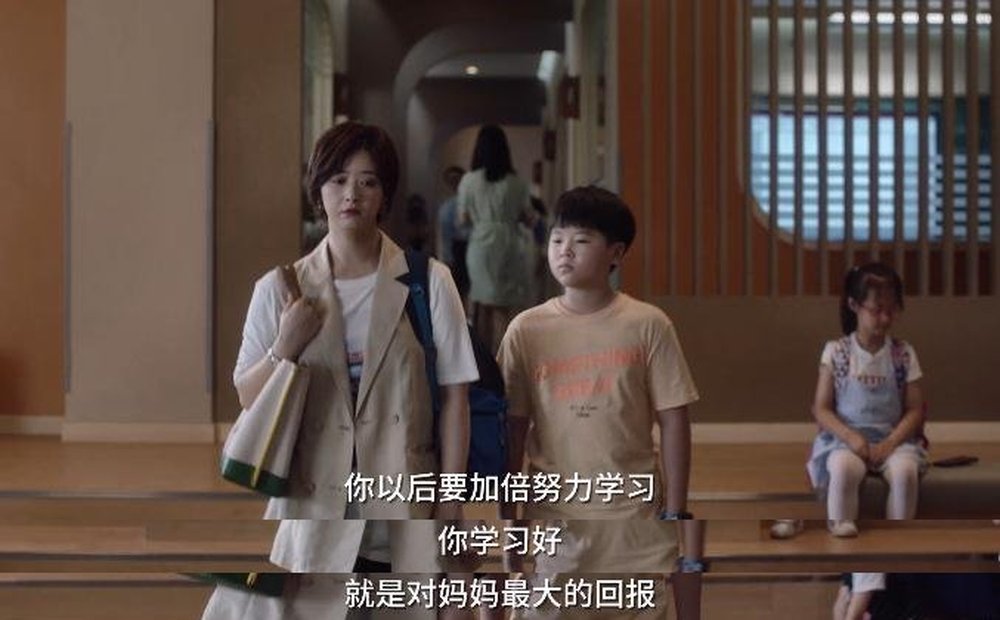
Source: Video screenshot.
Maybe you boast that your children have learned eighteen kinds of martial arts with good intentions, and you won’t get their gratitude in the end; Maybe you have carefully planned your children’s life path, but in the end it is some accidental hobbies and interests that help them achieve future success.
TV series can’t solve the difficult problems in reality, but it also provides another angle of thinking:
While parents are eager for their children to become Jackie Chan, should they pay more attention to how to ease their psychological problems? When urging children to make progress, can they listen to their voices more slowly?


